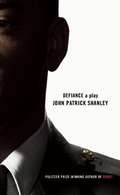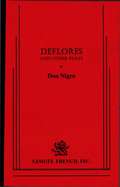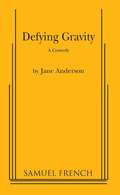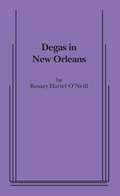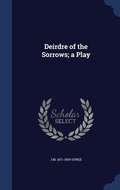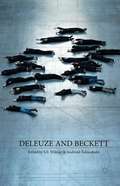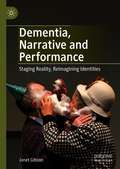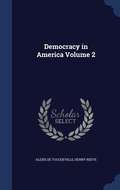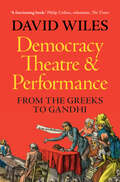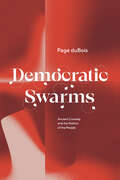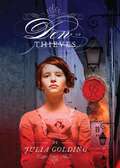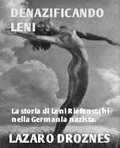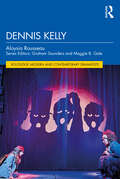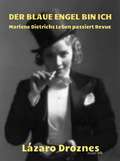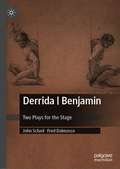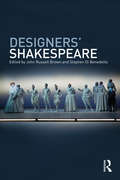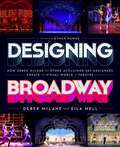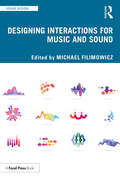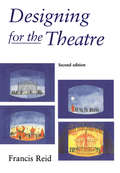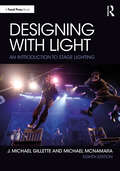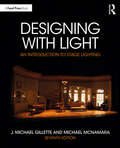- Table View
- List View
Defiance
by John Patrick Shanley"Defiance is a necessary step in the life of an individual and in the life of a nation."--John Patrick Shanley"As thoughtful and probing as its predecessor, Defiance [is] filled with the provocative questions and bristling dialogue for which Mr. Shanley is known . . . as it wonders about its big, knotty subjects."--Ben Brantley, The New York Times Defiance is the "very rich and satisfying" (The Village Voice) second work in John Patrick Shanley's trilogy that began with Doubt. The play is set in 1971 at Camp Lejeune, North Carolina, where Lt. Col. Morgan Littlefield and his reluctant protégé Capt. Lee King--a young African American officer--clash over issues of race and authority within the Marine Corps, even as the civil rights movement and Vietnam War divide the world outside. In this high-stakes struggle at the top of the ranks, witnessed by the base's inquisitive Chaplain White and Littlefield's irreproachable wife Margaret, Shanley has crafted another timely play exploring issues of power and morality within a hallowed institution. John Patrick Shanley's Doubt won the 2005 Pulitzer Prize for Drama and the Tony Award for Best Play, and was chosen as best play of the year by over ten news-papers and magazines. His other plays include Danny and the Deep Blue Sea, Four Dogs and a Bone, Psychopathia Sexualis, and Savage Limbo. He has written extensively for TV and film, including Moonstruck, for which he won an Academy Award for best screenplay.
Deflores and Other Plays
by Don NigroContents: Broadway Macabre Creatures Lurking in the Churchyard Deflores Doctor Faustus Gogol The Irish Girl Kissed in the Rain Wolfsbane
Defying Gravity
by Jane AndersonDrama / Characters: 3 male, 4 femaleScenery: Exterior with set pieces and projections. This free structured look at the 1986 Challenger disaster places the teacher who died with six others as they hurtled into space at the center of an exploration of our need to reach beyond ourselves and dare the universe. Defying Gravity artfully interweaves the past with the present and the lives of participants and bystanders, drawing parallels among painter Claude Monet's artistic quest, the zest of the teacher selected to the first civilian astronaut, the perspectives of her grieving daughter, the aspirations of elderly tourists who drive their Winnebago to Florida to watch the space shot and dream of hotels in space, the guilt felt by a NASA mechanic and his girl friend's fear of heights. . "Flies high in its attempt to describe man's fascination with space and its conquest.... You will certainly not be bored." N.Y. Post. . "[A] clever and uplifting fantasy ... [with] ear catching musings about art, religion and the outer limits of human possibility." N.Y. Times. . "A lovely piece.... It floats gracefully in the big blue yonder of the imagination ... letting Anderson's delicate, tender and human attitude toward her characters come through.... One by one they rise out of their earthbound selves ... to look down on the world from a new perspective." N.Y. Daily News.
Degas in New Orleans
by Rosary Hartel O'NeillCharaters: 3 male, 6 female . One Interior/Exterior Set . A historical drama that explores Edgar Degas' scandalous visit to New Orleans in 1872. Edgar Degas, the French Impressionist painter, is torn between helping his relatives in America and pursuing a career as a painter. Fame and family obligations come to a head when he discovers he is still in love with his sister-in-law, who is now pregnant and blind. As Edgar struggles with his own ethical conundrum, he discovers that his aggressively charming brother has gone through all the family money in an attempt to save his uncle's sugar business.
Deirdre of the Sorrows
by J. M. SyngeDeirdre of the Sorrows is a three-act play written by Irish playwright John Millington Synge, first performed at the Abbey Theatre by the Irish National Theatre Society in 1910
Deleuze and Beckett
by S. E. Wilmer Audronė ŽukauskaitėDeleuze and Beckett is a collection of essays illuminating similarities between the philosophies and practices of Deleuze and Beckett. The contributors include some of the leading Beckett and Deleuze specialists in the world, and their essays address different ideas and concepts of Deleuzian philosophy as well as a wide range of Beckett's oeuvre, including his novels, short stories, stage and television plays, and film work. The book considers Deleuze's interpretation of Beckett's work anddemonstrates that Deleuzian concepts and ideas can be usefully applied to Beckett's texts in order provide a greater understanding of Beckett's characters and their journeys. Deleuze's philosophy helps us to recognize that what has been seen as the private territory of despair, loneliness, and emptiness in Beckett's work masks a world of flow and fluctuation that expresses multiple and heterogeneous possibilities.
Dementia, Narrative and Performance: Staging Reality, Reimagining Identities
by Janet GibsonFocusing mainly on case studies from Australia and the United States of America, this book considers how people with dementia represent themselves and are represented in ‘theatre of the real’ productions and care home interventions, assessing the extent to which the ‘right kind’ of dementia story is being affirmed or challenged. It argues that this type of story — one of tragedy, loss of personhood, biomedical deficit, and socio-economic ‘crisis — produces dementia and the people living with it, as much as biology does. It proposes two novel ideas. One is that the ‘gaze’ of theatre and performance offers a reframing of some of the behaviours and actions of people with dementia, through which deficit views can be changed to ones of possibility. The other is that, conversely, dementia offers productive perspectives on ’theatre of the real’. Scanning contemporary critical studies about and practices of ‘theatre of the real’ performances and applied theatre interventions, the book probes what it means when certain ‘theatre of the real’ practices (specifically verbatim and autobiographical) interact with storytellers considered, culturally, to be ‘unreliable narrators’. It also explores whether autobiographical theatre is useful in reinforcing a sense of ‘self’ for those deemed no longer to have one. With a focus on the relationship between stories and selves, the book investigates how selves might be rethought so that they are not contingent on the production of lucid self-narratives, consistent language, and truthful memories.
Democracy in America -- Volume 2
by Alexis De TocquevilleThis anthology is a thorough introduction to classic literature for those who have not yet experienced these literary masterworks. For those who have known and loved these works in the past, this is an invitation to reunite with old friends in a fresh new format. From Shakespeare's finesse to Oscar Wilde's wit, this unique collection brings together works as diverse and influential as The Pilgrim's Progress and Othello. As an anthology that invites readers to immerse themselves in the masterpieces of the literary giants, it is must-have addition to any library.
Democracy, Theatre and Performance: From the Greeks to Gandhi
by David WilesDemocracy, argues David Wiles, is actually a form of theatre. In making his case, the author deftly investigates orators at the foundational moments of ancient and modern democracy, demonstrating how their performative skills were used to try to create a better world. People often complain about demagogues, or wish that politicians might be more sincere. But to do good, politicians (paradoxically) must be hypocrites - or actors. Moving from Athens to Indian independence via three great revolutions – in Puritan England, republican France and liberal America – the book opens up larger questions about the nature of democracy. When in the classical past Plato condemned rhetoric, the only alternative he could offer was authoritarianism. Wiles' bold historical study has profound implications for our present: calls for personal authenticity, he suggests, are not an effective way to counter the rise of populism.
Democratic Swarms: Ancient Comedy and the Politics of the People
by Page duBoisConsiders how ancient Greek comedy offers a model for present-day politics. With Democratic Swarms, Page duBois revisits the role of Greek comedy in ancient politics, considering how it has been overlooked as a political medium by modern theorists and critics. Moving beyond the popular readings of ancient Greece through the lens of tragedy, she calls for a revitalized look at Greek comedy. Rather than revisiting the sufferings of Oedipus and his family or tragedy’s relationship to questions of sovereignty, this book calls for comedy—its laughter, its free speech, its wild swarming animal choruses, and its rebellious women—to inform another model of democracy. Ancient comedy has been underplayed in the study of Greek drama. Yet, with the irrepressible energy of the comic swarm, it provides a unique perspective on everyday life, gender and sexuality, and the utopian politics of the classical period of Athenian democracy. Using the concepts of swarm intelligence and nomadic theory, duBois augments tragic thought with the resistant, utopian, libidinous, and often joyous communal legacy of comedy, and she connects the lively anti-authoritarianism of the ancient comic chorus with the social justice movements of today.
Den of Thieves (Cat Royal #3)
by Julia GoldingDisguised as a ballerina, Cat joins the French Revolution, only to find that it is up to her to save her friends after they are captured as traitors. The action-packed series continues with disguises, danger, drama, and the irrepressible Cat Royal.
Denazificando Leni
by Lázaro Droznes Luigia Pantalea RovitoQuesta finzione drammatica ricostruisce il processo a Leni Riefenstahl condotto dalla Commissione di Denazificazione degli Alleati per determinare il suo grado di responsabilità nei crimini nazisti, come parte della campagna di denazificazione effettuata nella Germania post-bellica. Diverse scene dei suoi documentari vengono usate come prova a suo carico, sostenendo che furono realizzati come strumenti della propaganda di regime. Leni difende la propria indipendenza e autonomia in quanto artista. Durante lo svolgimento del processo, appare il tema della relazione tra gli artisti e il potere, la necessità di sviluppare una carriera artistica indipendente dal potere politico e la possibilità di creare arte per l'arte. Un'arte il cui fine sia l'arte stessa.
Dennis Kelly (Routledge Modern and Contemporary Dramatists)
by Aloysia RousseauDennis Kelly explores Kelly’s unusual career path and sheds light on his eclectic approach to the arts, characterised by a refusal to write texts that people can fit within neat categories. This is the first monograph on Kelly’s work for stage and screen and brings to light his essential contribution to contemporary British drama and his huge range of work including his rise to international fame with Matilda the Musical.Drawing on Kelly’s published and unpublished texts, his work in production, reviews, original interviews with directors, actors and with Kelly himself as well as critical theory, Dennis Kelly examines and reappraises key motifs in his work such as his preoccupation with violence, the complex relationship between the individual and the community or his emphasis on storytelling. It also offers new insights into overlooked aspects of Kelly’s work by setting out to explore his traumatic narratives and his post-romanticism. In keeping with Kelly’s wish never to repeat himself, this study offers multiple critical entries into his plays, television series and films, drawing on moral and political philosophy, trauma studies, studies in humour, feminist theory and film studies.Part of the Routledge Modern and Contemporary Dramatist series, Dennis Kelly is addressed to students and scholars in Drama, Theatre and Performance as well as theatre practitioners and offers in-depth analysis of one of the most unique and challenging voices in contemporary British playwriting and screenwriting.
Denzil Quarrier
by George GissingThe novel Denzil Quarrier finds Gissing stretching beyond this well-trod comfort zone, telling the story of an heir to a Norwegian timber fortune in a gripping character study that is heavily influenced by the work of playwright Henrik Ibsen.
Der Anti-Stress-Trainer für Assistenzen
by Peter Buchenau Marit ZenkDieses Buch aus der Anti-Stress-Trainer Reihe ist die Erlösung für gestresste Assistenzen, die im Drehkreuz Sekretariat mit zig Bällen jonglieren. Spüren Sie den Druck, dem Sie unterliegen? Sei perfekt, sei stark, sei nett, sei schnell oder streng dich an - welcher Antreiber steckt in Ihnen? Zu Zeiten von 4.0 braucht selbst die modernste und versierteste Assistenz eine gute Strategie, um in der digital-verrückten Welt zu bestehen. Und zwar gesund! Lassen Sie sich Ihrer Illusionen „Jemals fertig zu werden“ und „Alles muss perfekt sein“ berauben. Neben dem erklärten Dilemma der Assistenz gibt es viele wertvolle Tipps zum Umgang mit Stress. Gepaart mit amüsanten Bildern, Sprüchen und Weisheiten bringt die Autorin Sie sicher zum Schmunzeln! Lassen Sie sich von Marit Zenk mit auf die Reise in Ihre Welt nehmen.
Der Blaue Engel bin ich: Marlene Dietrichs Leben Passiert Revue
by Lázaro Droznes Orlando GrossegesseMarlene Dietrich war einer der großen Hollywood-Stars und einer der großen Kino-Mythen. In Deutschland geboren, wurde sie durch Josef von Sterberg entdeckt; in die USA emigriert, wurde sie später dort eingebürgert. Sie wurde zur Ikone der Verführungskunst, der femme fatale, des ewig lockenden Weiblichen. Aber ihr Kampf gegen den Nazismus und ihre Teilnahme als Soldatin im Zweiten Weltkrieg zeigen eine andere, oft unterschlagene Facette ihrer Persönlichkeit. In diesem Werk verrät Marlene Begebnisse und intime Erfahrungen. Ihre Stimme wird durch berühmte Lieder wachgerufen, die ebenso wie ihre Erzählungen ein sagenumwobenes Leben Revue passieren lassen. Was ist das Mysterium, das Marlene Dietrich verbirgt und enthüllt?
Derrida | Benjamin: Two Plays for the Stage
by John Schad Fred DalmassoWithin the work of both Jacques Derrida and Walter Benjamin there is a buried theatricality, a theatre to-come. And in the last fifteen years there has been a growing awareness of this theatricality. To date, though, there has not been a published stage play about either Derrida or BenjaminCue Derrida| Benjamin, a volume that brings together two tragi-comic plays which mirror each other in a host of ways – above all, in the way that the central philosophical figure is displaced, or not quite where or when we would expect to find them. In Derrida’s case, it is Oxford in 1968; in Benjamin’s case, it is somewhere (or nowhere) near London in 1948. These, then, are plays in which the philosopher is exiled, or elsewhere – not quite himself. This a volume for anyone with an eye or ear for where theatre or performance meets philosophy – students, scholars, readers, actors.
Des rats dans la tête
by Antonio Morcillo Lopez Anne-Laure LachaudPol Pot, Idi Amín, Saddam Hussein et Staline, sont des rats qui vivent dans une boîte transparente. Ils sont habitués aux expériences scientifiques et savent ce que souffrir veut dire. Avec le temps, ils ont fini par considérer la décharge électrique comme une sorte de divinité insaisissable. Ils ne comprennent pas vraiment pourquoi elle survient, ni pourquoi on leur inflige autant de souffrance. Un jour, une décharge électrique un peu trop forte, a finalement raison d'eux. Ils passent alors de l'autre côté; celui des morts et décident de rendre visite au scientifique qui leur faisait subir toutes ces expériences. C'est l'heure de rendre des comptes...
Designers' Shakespeare
by John Russell Brown Stephen Di BenedettoTheatre Design involves everything seen on stage: not only scenery but costumes, wigs, makeup, properties, lighting, sound, even the shape and material of the stage itself. Designers’ Shakespeare presents and analyses the work of a half-dozen leading practitioners of this specialist art. By focusing specifically on their Shakespearean work, it also offers a fresh, exciting perspective on some of the best-known drama of all time. Shakespeare’s plays offer an unusual range of opportunities to designers. As they were written for a theatre which gave no opportunity for scenic support or embellishment, designers are freed from any compulsion to imitate original practices. This has resulted in the extraordinarily diverse range of works presented in this volume, which considers among others the work of Josef Svoboda, Karl-Ernst Herrmann, Ming Cho Lee, Alison Chitty, Robert Wilson, Societas Raffaello Sanzio, Filter Theatre, Catherine Zuber, John Bury , Christopher Morley, Ralph Koltai and Sean Kenny. Designers’ Shakespeare joins Actors’ Shakespeare and Directors’ Shakespeare as essential reading for lovers of Shakespeare from theatre-goers and students to directors and theatre designers.
Designing Broadway: How Derek McLane and Other Acclaimed Set Designers Create the Visual World of Theatre
by Eila Mell Derek McLaneIn this richly illustrated and information-packed celebration of Broadway set design, Tony Award–winning designer Derek McLane explores the craft while reflecting on some of the greatest stage productions of the past few decades.Together with other leading set design and theatre talents, McLane invites us into the immersive and exhilarating experience of building the striking visual worlds that have brought so many of our favorite stories to life. Discover how designers generate innovative ideas, research period and place, solve staging challenges, and collaborate with directors, projectionists, costume designers, and other artists to capture the essence of a show in powerful scenic design.With co-writer Eila Mell, McLane and contributors discuss Moulin Rouge!, Hamilton, Hadestown, Beautiful, and many more of the most iconic productions of our generation. Among the Broadway luminaries who contribute are John Lee Beatty, Danny Burstein, Cameron Crowe, Ethan Hawke, Moisés Kaufman, Carole King, Kenny Leon, Santo Loquasto, Kathleen Marshall, Lynn Nottage, David Rabe, Ruben Santiago-Hudson, Wallace Shawn, John Leguizamo, and Robin Wagner.Filled with personal sketches and photographs fromthe artists&’ archives, this stunningly designed book is truly a behind-the-scenes journey that theatre fans will love.
Designing Interactions for Music and Sound (Sound Design)
by Michael FilimowiczDesigning Interactions for Music and Sound presents multidisciplinary research and case studies in electronic music production, dance-composer collaboration, AI tools for live performance, multimedia works, installations in public spaces, locative media, AR/VR/MR/XR and health. As the follow-on volume to Foundations in Sound Design for Interactive Media, the authors cover key practices, technologies and concepts such as: classifications, design guidelines and taxonomies of programs, interfaces, sensors, spatialization and other means for enhancing musical expressivity; controllerism, i.e. the techniques of non-musician performers of electronic music who utilize MIDI, OSC and wireless technologies to manipulate sound in real time; artificial intelligence tools used in live club music; soundscape poetics and research creation based on audio walks, environmental attunement and embodied listening; new sound design techniques for VR/AR/MR/XR that express virtual human motion; and the use of interactive sound in health contexts, such as designing sonic interfaces for users with dementia. Collectively, the chapters illustrate the robustness and variety of contemporary interactive sound design research, creativity and its many applied contexts for students, teachers, researchers and practitioners.
Designing for the Theatre (Stage And Costume Ser.)
by Francis ReidNow in its second edition, Designing for the Theatre has established itself as the authoritative introduction to the processes of design for the theatre. Covering the contribution which can be made by costume, sets, props and lighting to a stage production, the author explains the purpose and process involved in their design. Included in this second edition are new photographs and drawings illustrating some of the most exciting and diverse current trends in stage design.
Designing with Light: An Introduction to Stage Lighting
by J. Michael Gillette Michael McNamaraNow in its eighth edition, Designing with Light introduces readers to the art, craft, and technology of stage lighting to help them create designs that shape the audience’s emotional reaction to—and understanding of—a stage production.This new edition is fully updated to include current information on the technology and equipment of stage lighting: lighting fixtures, lamps, cabling, dimmers, control boards, and LED tape, as well as electrical theory. Readers will learn how designed light is used to enhance the audience’s understanding and enjoyment of a production. The book includes specific information on drafting the light plot, explores the challenges of designing for different stage configurations, and provides examples of lighting designs for dramas, musicals, and dance. It also features comments and thoughts from active designers from both mainstream theatrical productions and related industries, and has a new emphasis on diversity and inclusion-related practices and language.Written for students of lighting design and technology as well as professional technicians and designers, Designing with Light offers a comprehensive survey of the practical and aesthetic aspects of stage lighting design.
Designing with Light: An introduction to Stage Lighting
by J. Michael Gillette Michael McNamaraNow in its seventh edition, Designing with Light introduces readers to the art, craft, and technology of stage lighting and media projection. The new edition is fully updated to include current information on the technology of stage lighting: lighting fixtures, lamps, cabling, dimmers, control boards, as well as electrical theory. Readers will learn how designed light is used to enhance the audience’s understanding and enjoyment of a production. The book includes specific information on drafting the light plot, explores the challenges of designing for different stage configurations, and provides examples of lighting designs for dramas, musicals, and dance. It also features comments and thoughts from active designers from both mainstream theatrical productions and related industries. Written for students of Lighting Design and Technology as well as professional technicians and designers, Designing with Light offers a comprehensive survey of the practical and aesthetic aspects of stage lighting design.
